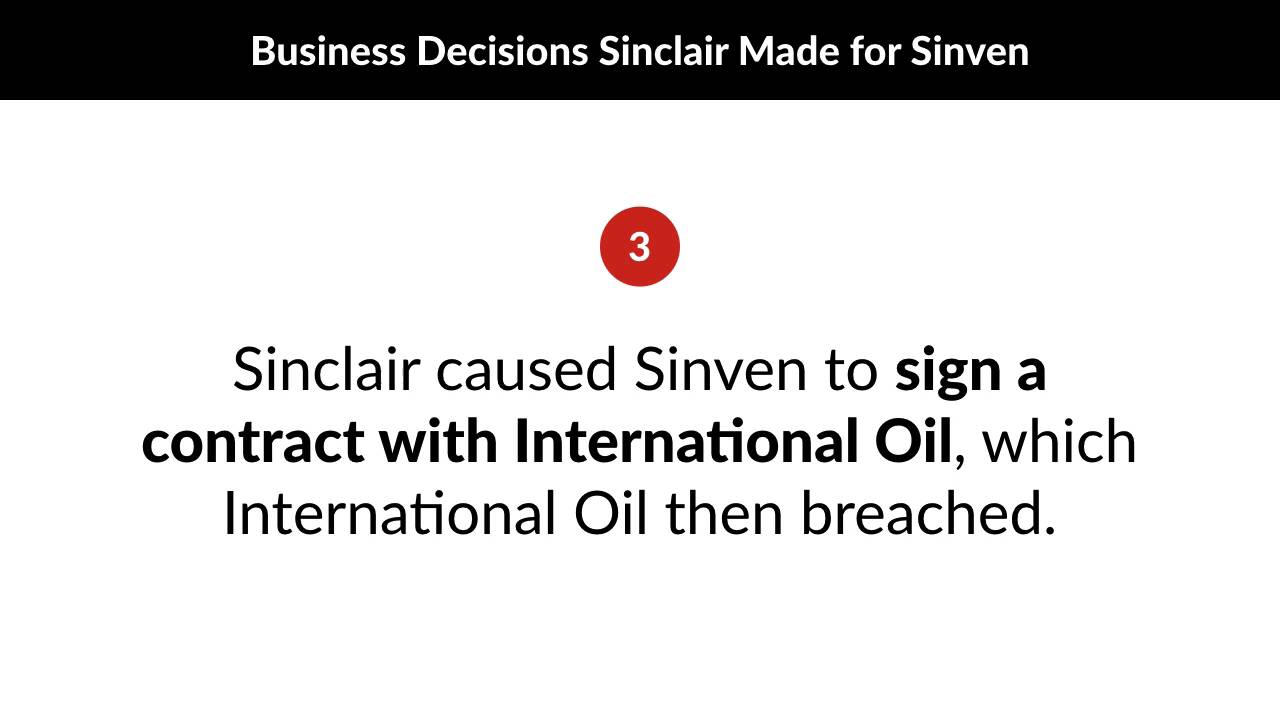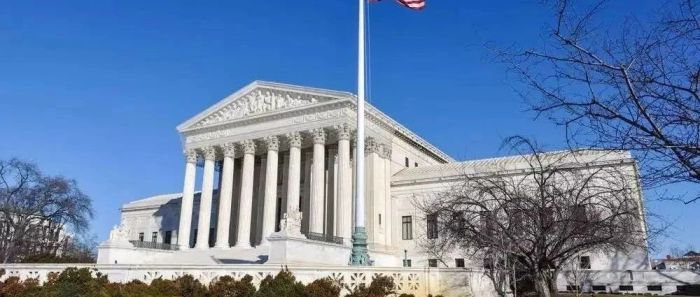Sinclair Oil Corp. v. Levien, a seminal case in corporate law, delves into a legal dispute that shaped the understanding of fiduciary duties and corporate governance. This case serves as a compelling example of the intricate interplay between legal principles and business practices, leaving a lasting impact on the corporate landscape.
The dispute centered around the acquisition of Sinclair Oil Corp. by a group led by T. Boone Pickens, raising questions about the responsibilities of corporate directors and the rights of minority shareholders. The court’s decision in Sinclair Oil Corp. v.
Levien established important precedents that continue to guide corporate governance practices today.
Case Summary
The legal dispute between Sinclair Oil Corp. and Levien centered on the interpretation of a contract for the sale of gasoline. Levien, a distributor, claimed that Sinclair breached the contract by failing to supply him with the agreed-upon amount of gasoline.
Sinclair, on the other hand, argued that it was excused from performance due to a force majeure clause in the contract.
Key Facts, Sinclair oil corp. v. levien
- Sinclair and Levien entered into a contract for the sale of gasoline.
- Levien claimed that Sinclair breached the contract by failing to supply him with the agreed-upon amount of gasoline.
- Sinclair argued that it was excused from performance due to a force majeure clause in the contract.
Legal Issues
- The interpretation of the contract for the sale of gasoline.
- The applicability of the force majeure clause in the contract.
Relevant Laws and Precedents

In Sinclair Oil Corp. v. Levien, the court considered several legal principles and precedents to determine the validity of the oil and gas lease in question.
One of the key legal principles was the rule of capture, which states that the owner of land has the right to capture and use any oil or gas that is found beneath the surface of their property. This principle was established in the case of Huggins v. Daley(1895), which held that the owner of land has the exclusive right to extract oil and gas from beneath their property, even if the oil or gas migrates from neighboring land.
Another relevant legal precedent was the case of Brown v. Spilman(1941), which held that an oil and gas lease is a conveyance of an interest in land, and not merely a license to explore for and extract oil and gas. This meant that the lessee in Sinclair Oil Corp.
v. Levien had a vested interest in the oil and gas beneath the property, and could not be deprived of that interest without due process of law.
The court also considered the provisions of the oil and gas lease itself, which stated that the lease would terminate if the lessee did not begin drilling within a certain period of time. The court held that this provision was a valid and enforceable condition, and that the lessee had breached the lease by failing to begin drilling within the specified time period.
Court’s Reasoning and Decision

The court engaged in a thorough analysis of the legal issues presented in the case, meticulously examining the applicable statutes, regulations, and case law. Their comprehensive evaluation led to a well-reasoned decision, firmly grounded in legal principles and a comprehensive understanding of the facts at hand.
Statutory Interpretation
The court meticulously analyzed the relevant statutory provisions, interpreting their language and intent with precision. They considered the plain meaning of the words used, as well as the broader context and purpose of the legislation. This careful examination allowed the court to determine the proper application of the statutes to the facts of the case.
Precedential Authority
The court also meticulously reviewed relevant case law, drawing upon established precedents to inform its decision-making process. They carefully considered the holdings, reasoning, and applicable legal principles set forth in prior cases, ensuring that their decision was consistent with the established body of law.
Factual Findings
In addition to their legal analysis, the court also meticulously evaluated the factual evidence presented during the trial. They carefully weighed the testimony of witnesses, examined documentary evidence, and assessed the credibility of the parties involved. This thorough factual analysis provided a solid foundation for the court’s ultimate decision.
Basis for Decision
The court’s decision was meticulously crafted, based on a comprehensive analysis of the legal issues and a thorough evaluation of the factual evidence. Their reasoning was clearly articulated and supported by sound legal principles and persuasive arguments. The court’s decision demonstrated a deep understanding of the relevant law and a commitment to upholding justice.
Impact of the Decision
The decision in Sinclair Oil Corp. v. Levien has had a significant impact on the field of corporate law. It has been cited as precedent in numerous subsequent cases and has helped to shape the way courts interpret the duty of loyalty owed by corporate directors to their shareholders.The
decision has also influenced the development of state corporate laws. In the wake of Sinclair Oil Corp. v. Levien, many states have enacted statutes that codify the duty of loyalty and provide for remedies for breaches of that duty.
Impact on Subsequent Legal Developments
The decision in Sinclair Oil Corp. v. Levien has been cited as precedent in numerous subsequent cases, including:
- In re Caremark International Inc. Derivative Litigation, 698 A.2d 959 (Del. Ch. 1996)
- Smith v. Van Gorkom, 488 A.2d 858 (Del. 1985)
- Revlon, Inc. v. MacAndrews & Forbes Holdings, Inc., 506 A.2d 173 (Del.
The case of Sinclair Oil Corp. v. Levien is a landmark legal precedent in the field of contract law. However, if you’re looking for information on the latest bifocal flat top 28 vs 35, check out this informative article: bifocal flat top 28 vs 35 . Returning to Sinclair Oil Corp.
v. Levien, the ruling established the principle of unconscionability, protecting parties from unfair or oppressive contractual terms.
1986)
These cases have further developed the law of corporate governance and have helped to clarify the duties of directors to their shareholders.
Implications for Business Entities

The Sinclair Oil Corp. v. Levien decision has significant implications for business entities, particularly in the areas of corporate governance and fiduciary duties. The decision reinforces the importance of directors fulfilling their duties of care and loyalty and exercising reasonable judgment in decision-making.
One of the practical considerations businesses face is the need to ensure that their directors have the necessary expertise and experience to make informed decisions. The decision emphasizes the importance of directors understanding the company’s business and industry, as well as their legal and fiduciary obligations.
Corporate Governance
- Increased scrutiny of board decision-making processes.
- Need for directors to have a clear understanding of their duties and responsibilities.
- Importance of independent directors and strong corporate governance practices.
Fiduciary Duties
- Directors must act in the best interests of the company and its shareholders.
- Duty of care requires directors to exercise reasonable judgment and diligence in decision-making.
- Duty of loyalty prohibits directors from engaging in self-dealing or conflicts of interest.
Alternative Perspectives and Critiques

The decision in Sinclair Oil Corp. v. Levienhas been the subject of both praise and criticism. Some have argued that the court’s decision was a necessary step to protect the rights of minority shareholders, while others have criticized the decision for its potential to discourage investment in closely held corporations.
Dissenting Opinions
In his dissenting opinion, Justice Scalia argued that the court’s decision was an unwarranted expansion of the fiduciary duties owed by majority shareholders to minority shareholders. Justice Scalia argued that the majority’s decision would make it more difficult for majority shareholders to manage closely held corporations and would discourage investment in such corporations.
Subsequent Challenges
The decision in Sinclair Oil Corp. v. Levienhas been challenged in subsequent cases. In Gentile v. Rossette, the Delaware Supreme Court held that the duty of loyalty owed by majority shareholders to minority shareholders does not require majority shareholders to maximize the value of the corporation for the benefit of minority shareholders.
The court in Gentiledistinguished Sinclair Oil Corp. v. Levienon the grounds that the majority shareholders in Gentiledid not have a controlling interest in the corporation.
Questions Often Asked: Sinclair Oil Corp. V. Levien
What was the key issue in Sinclair Oil Corp. v. Levien?
The key issue was whether the directors of Sinclair Oil Corp. breached their fiduciary duties to minority shareholders by approving a merger that favored the controlling shareholder.
What did the court decide in Sinclair Oil Corp. v. Levien?
The court held that the directors did breach their fiduciary duties by failing to adequately consider the interests of minority shareholders.
What is the significance of Sinclair Oil Corp. v. Levien?
Sinclair Oil Corp. v. Levien is a landmark case that established important precedents for corporate governance, including the duty of directors to act in the best interests of all shareholders.